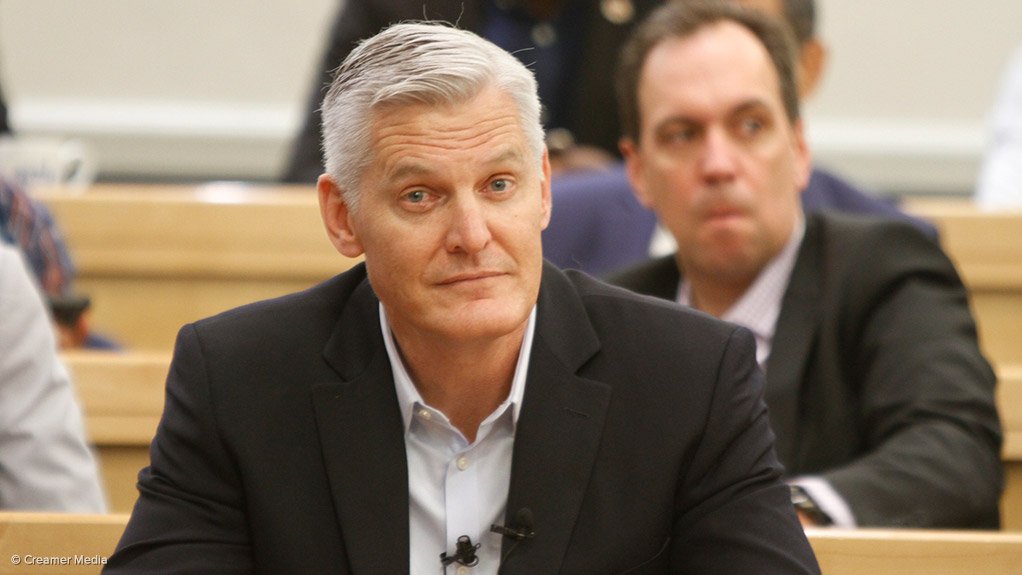The Central Energy Fund (CEF) has lashed out at former Eskom CEO André de Ruyter for speculating that Russia could be involved in its plans to take over soon-to-be-decommissioned plants and turn them into gas power stations.
The CEF said it was "unfortunate" that it was put in a position where it had to respond to De Ruyter's allegations.
"CEF considers it reckless for Mr De Ruyter to go on national television and make wild allegations about the request for collaboration with Eskom on the coal-fired power stations that Eskom intends to decommission," it said in a statement on Thursday.
In an interview with e.tv's Annika Larsen, broadcast on Tuesday night, De Ruyter cautioned that he was "going into the realm of speculation", with "no evidence", when he spoke about the repercussions of a visit by Russian minister of energy Nikolay Shulginov to SA late last year. This was in the context of the decreased flow of Russian gas to Europe due to a variety of factors in the wake of its invasion of Ukraine.
"It [Russia] is looking for markets for gas, there is no doubt about that. It was quite interesting for me to observe how soon after we received a request from the Central Energy Fund to transfer three of our ageing power stations Camden, Hendrina and Grootvlei to the Central Energy Fund - which by the way reports into the Department of Mineral Resources and Energy - to convert those to gas.
"Maybe I am adding one and one and getting three, but [in] politics there is very seldom such a thing as a coincidence," De Ruyter said in the interview, which also highlighted the level of corruption he had to deal with at Eskom, including the involvement of a "senior politician".
The day after the interview, De Ruyter, whose resignation was set to take effect at the end of March, left the job "with immediate effect".
In August last year Mineral Resources and Energy Minister Gwede Mantashe told Bloomberg that his plans to create a new state-owned power company would involve converting the Hendrina, Grootvlei and Camden coal-fired plants into gas power stations.
"If we re-purpose them into gas power stations, we will save a lot of life in South Africa in terms of energy," Mantashe told Bloomberg.
The CEF said on Thursday that its message to Eskom was, and still is to "intensify collaboration between the two" given "the importance of gas" in the Just Energy Transition.
The CEF attached its previous correspondence with De Ruyter to Thursday's statement.
In a letter to De Ruyter, CEF group CEO Ishmael Poolo requested an "urgent engagement with Eskom in order to establish the most pragmatic form of Eskom availing the infrastructure to CEF". Poolo highlighted CEF's stake in the Rompco gas pipeline from Mozambique, and said the company was also interested in converting Eskom's diesel-powered units to gas powered stations.
De Ruyter said in response that Eskom wants to "repower its soon-to-be-decommissioned power stations to solar, wind, battery energy storage systems and synchronised condenser technologies".
"Also, studies were conducted on the feasibility of gas-to-power technologies, specifically at the Komati power station. The results indicate that the conversion of the current boilers to be gas-fired is not cost effective, mainly due to the inefficiencies of the process and the age of the infrastructure," De Ruyter said.
He said Eskom "intends to work with the private sector, through public-private partnership (PPP) models to repower the stations to renewable technologies".
De Ruyter also said that Eskom was considering turning its diesel-powered open-cycle gas turbines plants to gas, and the "intent is to soon put out a tender for the supply of gas".
The back-and-forth correspondence eventually ends, according to the documents provided by the CEF, with De Ruyter agreeing to Poolo's request for a workshop to discuss the matter.
EMAIL THIS ARTICLE SAVE THIS ARTICLE
To subscribe email subscriptions@creamermedia.co.za or click here
To advertise email advertising@creamermedia.co.za or click here











